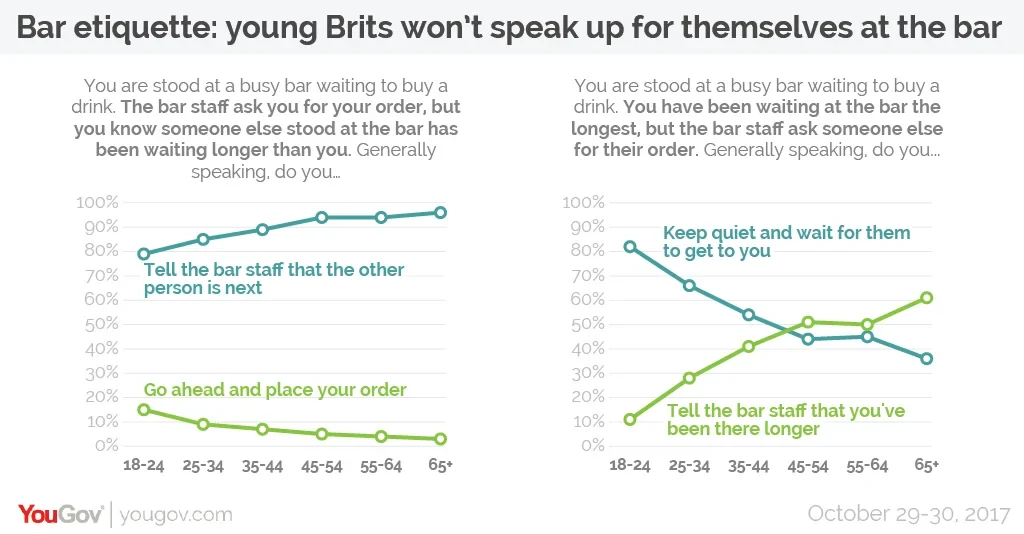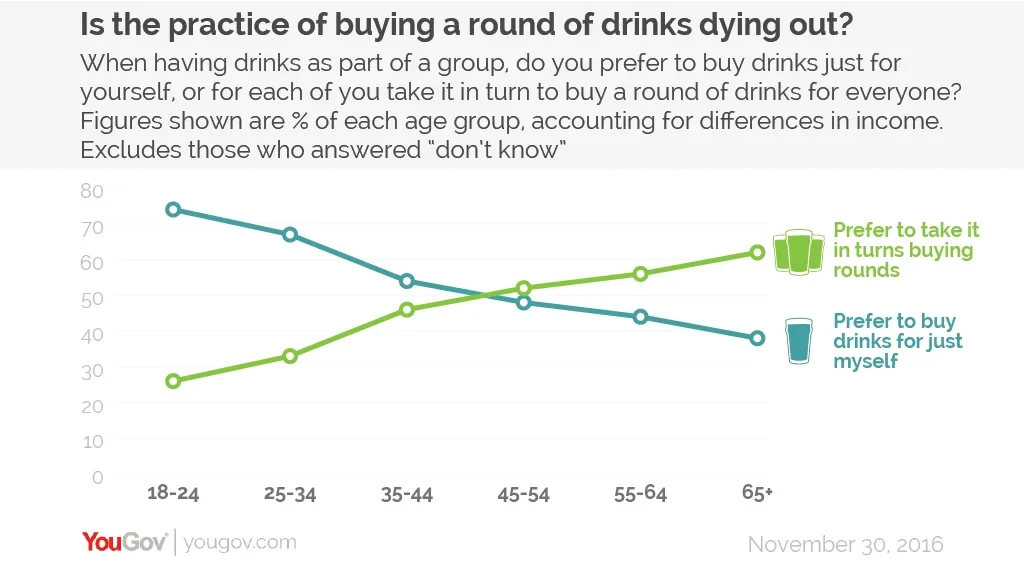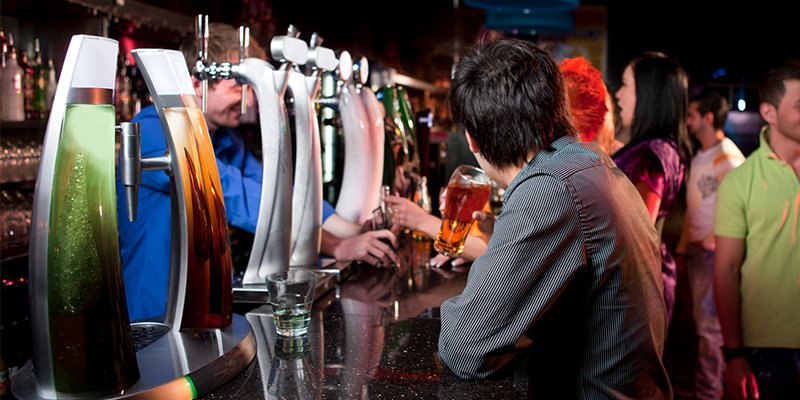They are also less keen on buying rounds than their elders
Trying to get served at a busy boozer can be a protracted and infuriating affair. Thirsty drinkers jockey for position, and once at the bar itself there is the danger that the overworked staff won’t have kept track of who’s should be served next.
Now new YouGov Omnibus data reveals that, when faced with a barperson who’s not kept track of who's next in line to be served, Brits are keen to ensure fairness for others in the queue but markedly less so for themselves.
If a person found themselves inadvertently jumping the queue – because the bar staff asked them what they want ahead of someone who has been there longer – the overwhelming majority of Brits (91%) say they would tell the barperson that someone else was next.

But should the situation be reversed – with a barperson asking to serve someone who had been there for less time than them – only 44% of Brits say they would speak up, while half (51%) would just keep quiet and wait for the staff to get round to them.
This divide is down to age: younger Brits are far less likely to speak up for themselves than their elders. While just 11% of 18-24 year olds would tell the bar staff that they’ve been there longer, this rises to 61% among those aged 65 or older.
The decline of the round?
Previous YouGov research revealed another significant difference between the generations when it comes to drinking-related behaviour: buying rounds. The public as a whole is split, with 44% preferring to buy drinks for themselves and 41% favouring taking it in turns buying rounds.
However, among the youngest Brits (18-24 year olds) that figure is skewed 67%/15% in favour of buying just their own drinks. Each subsequent age group becomes more likely to prefer buying rounds – with crossover occurring at the 45-54 age group and those aged 65 and older having the strongest preference for buying rounds at 50% vs 33%.

Part of the reason for this could be financial – younger people tend to have less disposable income than their elders, and so it would make sense that they would prefer to only make smaller, individual purchases.
However, if we account for differences in income it remains the case that younger people are much more adverse than their elders to getting a round in. While 62% of people aged 65 or older would rather buy rounds, this falls to just 26% for 18-24 year olds. (Please note that these last figures exclude those who answered “don’t know”).
Photo: Getty
See the results for bar etiquette here and buying rounds here









